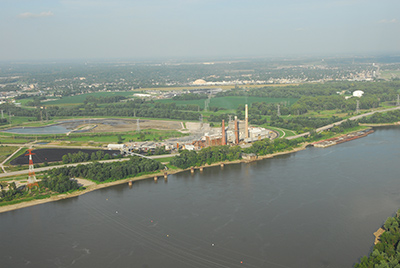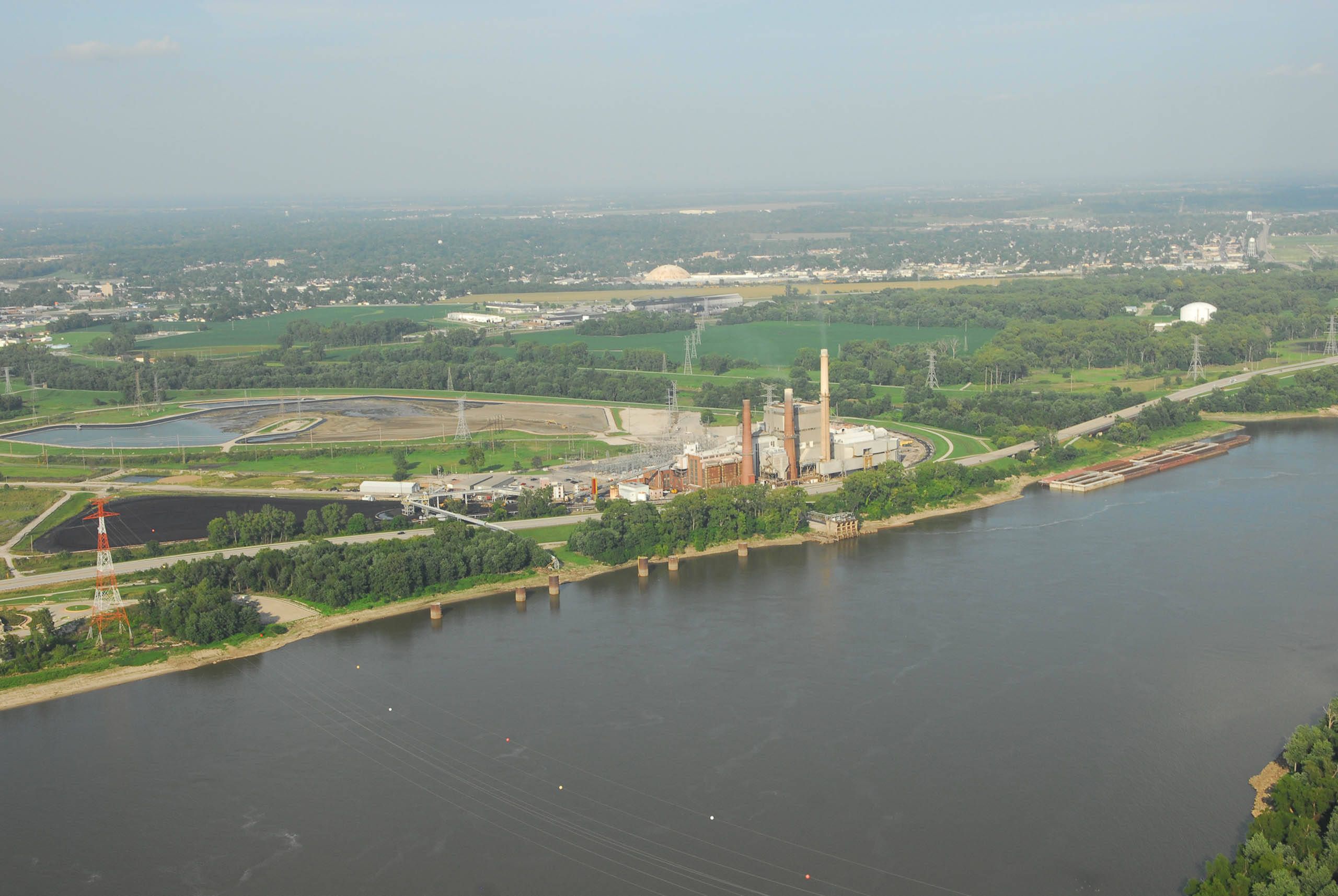



Arcing across the Great River Road near the mouth of the Wood River channel are the coal conveyors of the Wood River Power Station. With coal heaps and smokestacks a part of this river-bend landscape since 1954, this 465-megawatt (MW), coal-fired power plant is currently owned and operated by Texas-based Dynegy. The plant consumes almost 350 million gallons of water per day while fed primarily by coal shipped by barge along the Mississippi. In 2009, it ranked 90th on a list of most-polluting coal plants in the United States in terms of coal combustion waste stored in surface impoundments—elevating its US EPA warning level to “high hazard” due to the catastrophic implications of an impoundment rupture for the downriver floodplain. The large surface impoundments (covering approximately 100 acres in total) are designed to store fly ash, bottom ash, boiler slag, coal pyrite sluice water, and sundry coal combustion waste in permanent pond systems. As is the case in many post-industrial sites, over time these industrial ponds have begun to fill with vegetation and wildlife. As such, behind the 20-foot earthen dams of the safety cells is another of the ironic twenty-first century wildernesses of the American Bottom—a sort of paradoxical, de-facto industrial wasteland/wetland habitat.
In 2015 the owner of the plant announced its imminent closure and the layoff of approximately 90 workers. Dynegy cited the “uneconomic operation” of the plant given conflicting market competition frameworks at work in the area.